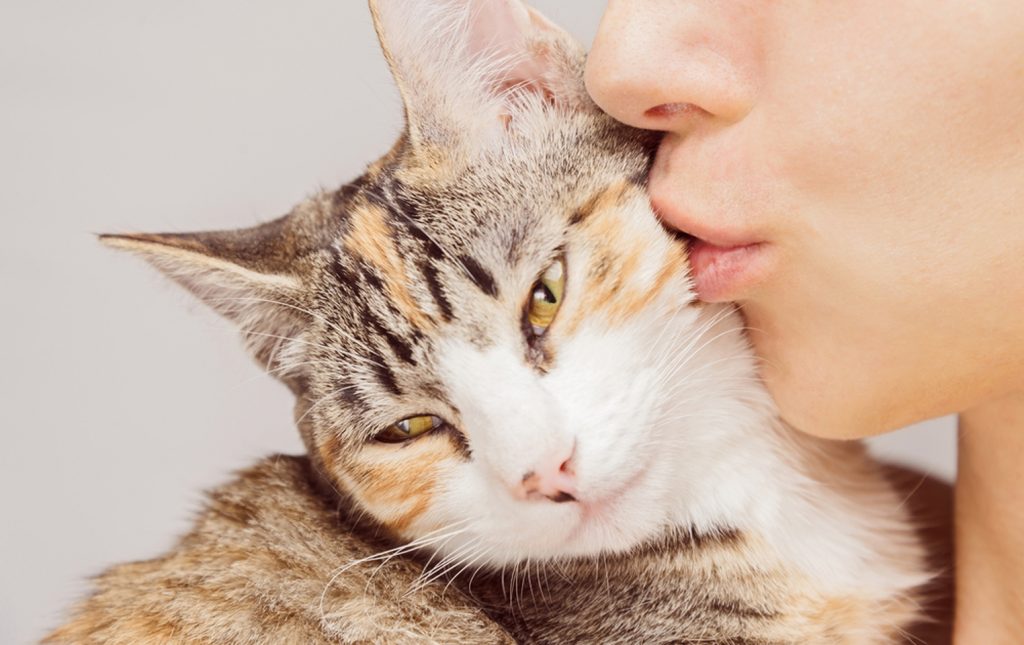How does Covid-19 affect pets?

The coronavirus pandemic has moved at such a blistering pace that many fundamental questions about where the virus came from and how it spreads are still yet to be definitively answered.
Because the virus has been shown to jump across species — and thanks to some anecdotal reports about COVID-19 in pets — owners are understandably worried about how COVID-19 could affect their companion animals.
Jackson Ryan, Science Editor at C-Net, answers pet owners’ most pressing questions, along with emerging research in how animals may spread or be affected by the coronavirus.
Can the coronavirus infect cats and dogs?
Some media reports have shown the coronavirus can infect our companion animals. and more-exotic species like tigers and lions have tested positive as well. But cases remain rare. It appears transmission of the disease from human to animal is low, with a tiny number of cases reported since the outbreak’s early days. Importantly, there is still no evidence pets can transmit to their owners.
There have been several reports providing evidence of SARS-CoV-2 infection in household pets. A 17-year-old dog in Hong Kong repeatedly tested “weakly positive” for coronavirus in March and later died. A cat in Belgium tested positive for the disease on March 24. And two pet cats in New York tested positive in April, presumably after contracting the virus from people in their homes or neighbourhood.
“These pets were living with infected human owners, and the timing of the positive result demonstrates human-to-animal transfer,” said Jacqui Norris, a veterinary scientist at the University of Sydney in Australia.
Study shows cats may infect other cats
Further evidence for how pets might contract COVID-19 comes from a study by researchers at the Harbin Veterinary Research Institute in China, published in the journal Science on April 8. It examined the susceptibility of a number of species to COVID-19, including cats and dogs, using a small number of animals.
The results demonstrated cats can be infected with the coronavirus and may be able to spread it to other cats via respiratory droplets. The team placed infected animals in cages next to three animals without the disease and found, in one case, the virus had spread from cat to cat. The felines didn’t show any outward signs of illness, however.
Dogs more resistant
Dogs appear to be more resistant. Five 3-month-old beagles were inoculated with SARS-CoV-2 via the nasal passage and housed with two dogs not given the virus. After a week, the virus was not detected in any dogs, but two had generated an immune response. The two dogs that didn’t receive the virus didn’t acquire it from their kennel mates.
A study, published in the journal Nature on May 14, looked at two instances of COVID-19 in dogs in Hong Kong – the previously mentioned 17-year-old dog, a Pomeranian, and a 2.5-year-old German Shepherd. The study showed virus was in samples taken from the two animals but importantly there were no signs of illness. A second dog, a cross-breed, was housed with the German Shepherd, but samples taken from the animal didn’t detect any sign of the virus.
Can I get COVID-19 from my pet?
There’s still a lot we don’t know about transmission of SARS-CoV-2, but the most important point to reiterate: There is a lack of evidence the coronavirus is spread by pets and companion animals to humans.
“There is absolutely no evidence whatsoever that companion animals play any role in the epidemiology of this disease,” said Trevor Drew, director of the Australian Animal Health Laboratory.
You may also be wondering if you can pick it up from your pet’s fur? The risk is low — but not zero — because the coronavirus can survive on surfaces and is able to be transmitted via droplets. Theoretically, it might persist on fur, so you should always wash your hands before and after you interact with your animals, especially if you’re feeling unwell.
“People appear to pose more risk to their pets than they do to us,” said Glenn Browning, a veterinary microbiologist at the University of Melbourne, Australia.
How can I protect my pets?
If you are feeling unwell and believe you may have contracted COVID-19, the first thing you should do is get tested. If you suspect you are unwell, the recommendation from the US Centers for Disease Control and Prevention is to “restrict contact with pets and other animals, just like you would around other people.”
The best method of protection remains prevention. There are a huge number of resources available from the WHO on reducing your risk of infection.
Is there a vaccine for COVID-19 in dogs and cats?
As with humans, there is no vaccine available against COVID-19 at this time. There is a canine coronavirus vaccine, but it is directed against another member of the coronavirus family and does not provide protection against COVID-19.


Sorry, the comment form is closed at this time.